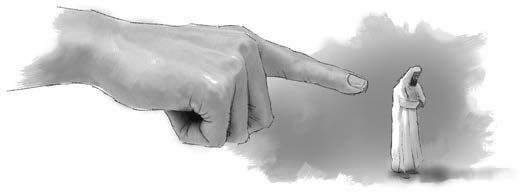While Mihaela worked and kept house, her husband neither worked nor studied. One day he told her that he had received a visa to go to Spain, but hers hadn’t yet come. So he went to Spain without her.
Mihaela lived with her in-laws after her husband left. She had plenty of time on her hands, so she began reading Adventist literature that her mother had given her. Finally her visa came, and she planned to join her husband. She promised God that if they could be reunited, she would be baptized at the first opportunity.
When Mihaela arrived in Spain, she moved into the apartment she and her husband would share with two other families and a single woman. She was delighted to find that one of the families was Adventist, and they had been taking her husband to church. Joyfully the couple began attending church together.
Mihaela found work as a nanny, which required that she be away from home from Monday morning until Friday evening. She lived for the weekends, when she could be with her husband.
Things seemed to be going well for the couple. Her husband had found work, and she looked forward to being able to afford their own apartment soon.
Then one by one people began telling Mihaela that her husband was spending too much time with the single woman who lived in the same apartment. Mihaela noticed that the two seemed quite friendly, but they denied any secret relationship.
Then her husband’s interest in attending church waned. He began asking Mihaela to cook or go shopping with him on Sabbath. When she refused, he threatened to take the other woman instead. Finally, she gave in and went shopping with her husband and the other woman. She was miserable and decided she wouldn’t give in to his threats again.
The following week the Adventist pastor visited, and Mihaela told him she wanted to be baptized. Later that week her husband’s boss confirmed that her husband and the other woman were more than just friends. Mihaela confronted the woman, who admitted it was true.
Mihaela couldn’t return to the apartment, so she asked her employers if she could stay in their home on the weekends as well.
In spite of losing her husband to another woman, Mihaela has found joy in her constant friend, Jesus, who has given her faith and the strength to deal with her broken marriage. She rejoices to see how God is working in her life, and her parents are happy that she has committed her life to Christ in baptism.
